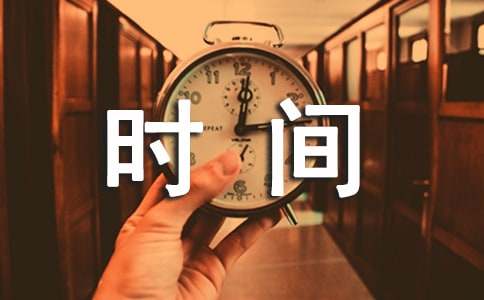Time and the Machine(時間與機器)
Time and the Machine

Time, as we know it, is a very recent invention. The modern time sense is hardly older than the United States. It is a by-product of industrialism--a sort of psychological analogue of synthetic perfumes
and aniline dyes.
Time is our tyrant. We are chronically aware of the moving minute hand, even of the moving second hand. We have to be. There are trains to be caught, clocks to be punched, tasks to be done in specified periods, records to be broken by fractions of a second, machines that set the pace and have to be kept up with. Our consciousness of the smallest units of time is now acute.
Another time emphasizing entity is the factory and its dependent, the office. Factories exist for the purpose of getting certain quantities of goods made in a certain time. The old artisan worked as it suited him with the result that consumers generally had to wait for the goods they had ordered from him.The factory is a device for making workmen hurry. The machine revolves so often each minute; so many movements have to be made, so many pieces produced each hour. Resuit. the factory worker (and the same is true of the office worker) is compelled to know time in its smallest fractions. In the hand-work age there was no such compulsion to be aware of minutes and seconds.
Our awareness of time has reached such a pitch of intensity that we suffer acutely whenever our travels take us into some corner of the world where people are not interested in minutes and seconds. The unpunctuality of the Orient, for example, is appalling to those who come freshly from a land of
fixed meal times and regular train services. For a modern American or Englishman, waiting is a psychological torture. He has not lost the fine art of doing nothing. Our motion of time as a collection of minutes, each of which must be filled with some business or amusement, is wholly alien